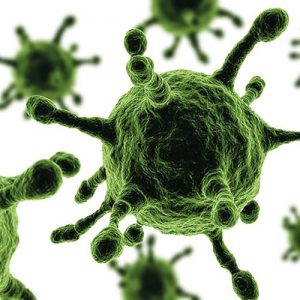In this special series, Dr Laura Waters has focussed on the main sexually transmitted infections gay men are at risk from. In this final week it’s Chlamydia.

Chlamydia is a bacteria and the second commonest sexually transmitted infection (STI) in gay men (gonorrhoea is first). There are actually three types of chlamydia that can infect humans; chlamydia trachomatis is the type that causes STIs.
There were around 15,000 UK cases in gay men in 2017; like syphilis and gonorrhoea this was an increase on 2016. The rise is likely due to more condomless sex driven by group sex, chem sex and less serosorting (where you only have condomless sex with someone with the same HIV status – with PrEP and U=U this has declined).
Chlamydia is pretty infectious; if you check partners of people with chlamydia three quarters of them have chlamydia too. Chlamydia can infect the genitals, rectum and throat – less commonly the eye and balls. There are often no symptoms, especially from throat infection; you may get a discharge from the penis and some discomfort when you wee and/or similar symptoms from your bum depending on the site of infection. Complications include arthritis and, in women, pelvic infection, which can cause pain and infertility.
Aggressive strain LGV
Lymphogranuloma venereum (LGV) is a more aggressive strain of chlamydia. LGV was rare in Western Europe but in the early 2000s we saw more cases in gay men, particularly men with HIV. It’s less common than ‘standard’ chlamydia – in 2016 there were about 900 cases, almost all in gay men and two thirds in men with HIV.
LGV mainly causes rectal infection and is more likely to cause symptoms of pain, bleeding or discharge or constipation, although 1 in 4 cases won’t have symptoms. It’s transmitted through sex; some cases have been linked to sharing douching equipment. Untreated LGV can cause scarring and narrowing of the rectum. Sexual health clinics test you for LGV if you have rectal symptoms or if your standard rectal chlamydia result is positive and you have HIV. It’s treated with the same medication as non-LGV chlamydia but for longer. People with LGV are at a higher risk of hepatitis C so you should test for this too. You can read more about LGV on the Terrence Higgins Trust website at tht.org.uk.
Treatment for chlamydia
The recommended treatment for chlamydia changed recently; for many infections we used a single dose of an antibiotic, azithromycin, but there were two problems. Firstly, rising rates of resistance to azithromycin in other bacteria that cause STI; secondly, azithromycin is not very good at treating rectal infection.
First line treatment is now 7 days of a different antibiotic, doxycycline (3 weeks for LGV). Unlike gonorrhoea, chlamydia has not developed any important antibiotic resistance. Once treated you will need a repeat test to check, it’s only if you had rectal infection.
Sexual partners who may have been exposed should be contacted for testing and treatment – clinics can do this for you, anonymously if you prefer. How far back depends on whether you have symptoms and when your last test was. If you may have been exposed to chlamydia it can take up to 2 weeks for it to show up on tests so, unless you have symptoms, get a check-up a fortnight after possible exposure.
How long before you can have sex again? With doxycycline, you are non-infectious once you’ve finished the course – you shouldn’t have sex during treatment, even with condoms. With azithromycin (we use a 3-day course if you’re allergic to doxycycline) wait a week after finishing treatment (again, no sex, even with condoms). If your partner(s) have been treated then you should wait until both of you have been treated.
Chlamydia is completely curable but you can get repeated infections; condoms offer protection (probably around a 90% reduction in risk) but not complete. Regular testing, particularly when you have a new sexual partner, prompt treatment, avoiding sex during treatment and getting partners tested and treated if you do have an infection will all help.
The Boyz Doc is Dr Laura Waters, an HIV and sexual health consultant at the Mortimer Market Centre in central London. Dr Laura answers your questions every week in Boyz. If you have a question for Dr Laura please email her at [email protected]














